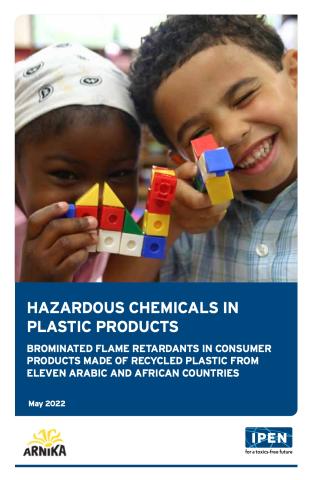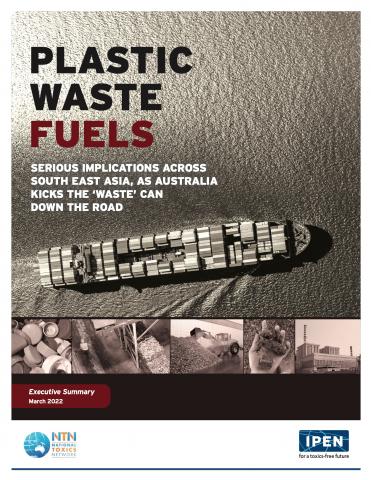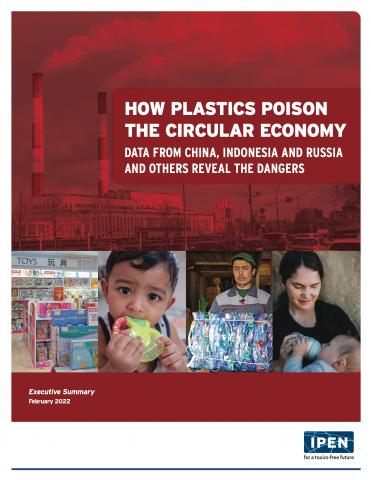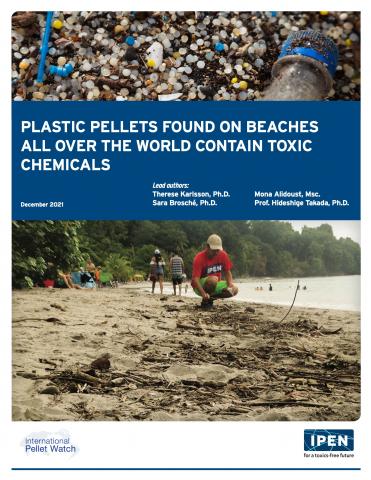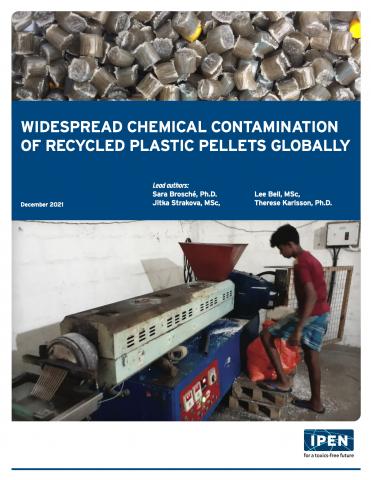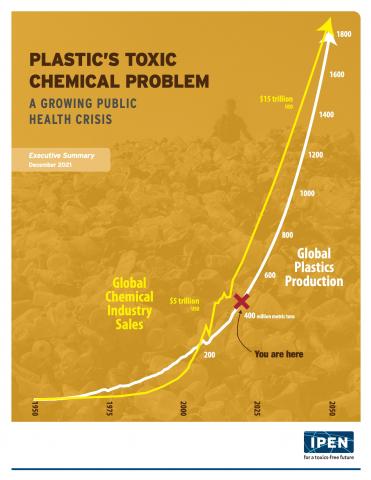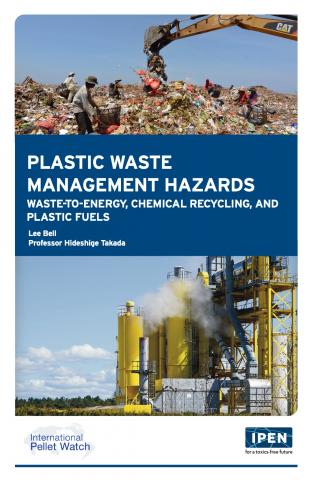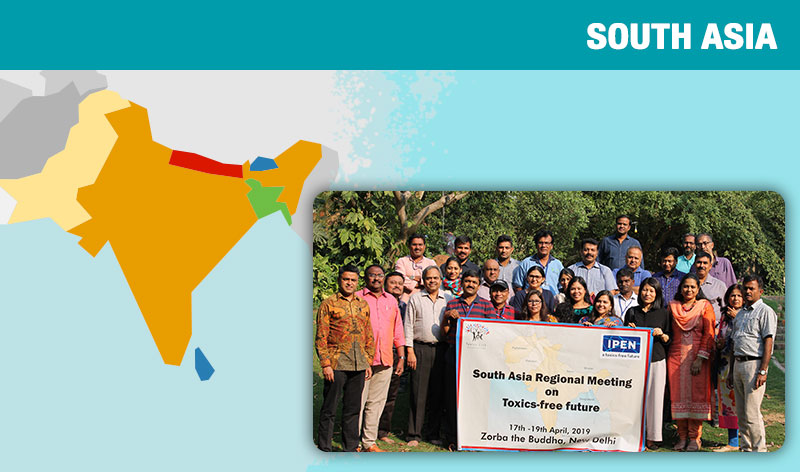
Top News

EDC Free Asia 2 Conference
The IPEN participating organizations in South Asia and Southeast & East Asia attended the international conferences on EDC Free Asia II and Addressing ASGM Concerns for a Safe Asia conducted from January 23-24, 2024 in Seoul, South Korea. The EDC Free Asia II conference aimed at sharing the results of the project on endocrine-disrupting chemicals (EDCs) with the participation of the IPEN POs in South, Southeast, and East Asia, discuss solutions, campaign strategies and action points to promote the study results and use them in the POs’ work in their respective countries. The study tested 362 products for the presence of parabens and triclosan. It was conducted in coordination with twelve IPEN POs in eight countries who conducted product surveys and are further organizing stakeholder dialogues and other communication and outreach activities. The conference on Addressing ASGM Concerns for a Safe Asia aimed to discuss the exposure status of mercury in ASGM areas in Southeast Asia based on the research findings of the Mercury Free Asia project and explore solutions to address the mercury issues at the national and regional levels. The conferences were co-organized by the Wonjin Institute of Occupational and Environmental Health (WIOEH), Korea Financial Industry Foundation (KFIF), and IPEN regional hubs in South Asia and Southeast and East Asia.
CEJ, Sri Lanka; CEPHED, Nepal; ESDO, Bangladesh; Prithvi Innovations, India; and Toxics Link, India participated in the study and the conference.
See the summary of the study findings here.
More News
Upcoming Events
- Plastics Treaty INC-4
21 – 30 April 2024
Location: Ottawa, Canada - Science-Policy Panel Open Ended Working Group
07 – 24 June
Location: Geneva, Switzerland - POPRC-20
23 – 27 September
Location: Rome, Italy - Plastics Treaty INC-5
25 November – 01 December
Location: Busan, Republic of Korea
Recent Reports
Sri Lanka: X-Press Pearl: A 'New kind of oil spill'
Bangladesh: Bangladesh: COVID-19 Chemicals and Waste
Bangladesh: Toxic Plastic Waste: Situation of Disposal, Management and Trade of Bangladesh
India: Situation Report on Highly Hazardous Pesticides in Dausa, Rajasthan
India: COVID-19 Chemicals and Waste in Bhubaneswar
India: A report on COVID-19 impacts on Chemicals and Wastes
India: Issue and Concerns of Talcum Powder in India: Time to Act
India: COVID-19 Industry Rollbacks
Nepal: Effective implementation of the asbestos ban in Nepal
Sri Lanka: Plastic Waste Management in Sri Lanka – Country Situation Report
Newest IPEN Reports
Hazardous Chemicals in Plastic Products
Both the environment in Africa and the Arabic region and the human health of Africans and people from Arabic countries suffer from toxic chemicals and imported wastes, including illegal wastes, more than in developed countries.
This study shows that toxic chemicals are present in toys, kitchen utensils, and other consumer products purchased from African and Arabic region markets in Burkina Faso, Cameroon, Egypt, Ethiopia, Gabon, Jordan, Kenya, Morocco, Syria, Tanzania, and Tunisia.
Plastic Waste Fuels
IPEN studies show how policy is driving massive investment in plastic waste-to-fuel processing, and that exports are threatening waste management in ASEAN countries and undermining the Basel Convention and climate change commitments.
Plastic Poisons the Circular Economy
IPEN published a number of studies showing significant obstacles for countries seeking to implement safe plastic circular economies. The studies reveal that countries are unable to handle large volumes of diverse plastics waste streams safely, and the reality that, without regulations requiring plastic ingredients to be labeled, countries are blindly allowing known toxic chemicals onto their markets in plastic products.
Plastic pellets found on beaches all over the world contain toxic chemicals
Preproduction plastics as pellets, or "nurdles", can carry many different chemicals, both those added to the plastics and pollutants that attach (sorb) to them in the environment. Often lost during production, transportation, and storage, pellets have been found on beaches all over the world since the 1970s. This study of plastic pellets gathered from beaches in 23 different countries contained many chemicals of concern, some in very high concentrations.
Widespread chemical contamination of recycled plastic pellets globally
Because almost all plastics contain toxic chemicals, recycling processes can perserve and can even generate toxic chemicals, such as dioxins. In this study, pellets made from recycled HDPE, intended for use in new products, were purchased from 24 recyclers in 23 countries and analyzed for 18 substances. The large number of toxic chemicals in many of the samples highlights the need to rethink recycling to ensure it does not perpetuate harms..
Plastic’s Toxic Chemical Problem: A Growing public health crisis
This summary of our two plastic pellets reports encapsulate the broad issues related to toxic chemicals in plastics and the concerns with recycling processes that can perserve or generate toxic chemicals.
Plastic Waste Management Hazards
Plastic waste has become an unprecedented pollution issue, blanketing our planet in the petrochemical remnants of plastic production. This report examines current and emerging methods by which plastic waste is managed globally and questions whether any of them present a solution to the rapidly accelerating generation of plastic waste. In short, they don't and the only long-term answer is to produce less plastic.
Regional Hub
Toxics Link
Based in India
Regional Coordinator: Tripti Arora
Contact: sahub@ipen.org
Toxics Link is an environmental NGO, dedicated to bring toxics-related information into the public domain, both relating to struggles and problems at the grassroots level as well as global information to the local levels. We work with other groups around the country as well as internationally in an understanding that this will help bring the experience of the ground to the fore, and lead to a more meaningful articulation of issues.
Read more about Toxics Link
Get our Newsletter
Video Highlight




